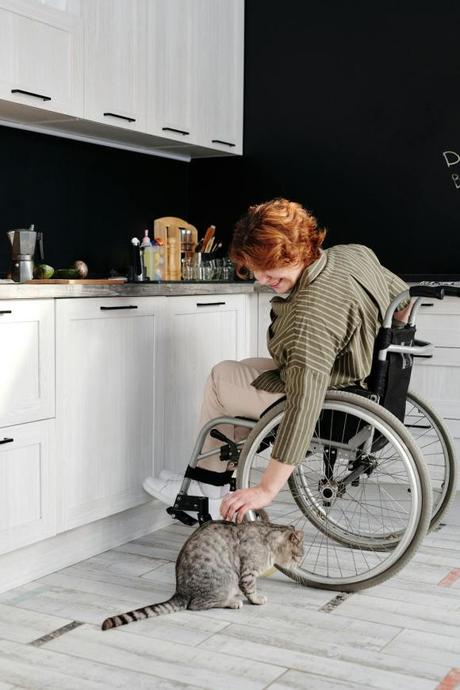Bringing independence to a loved one's life, especially when they face mobility challenges, is a meaningful endeavor. With thoughtful adjustments and supportive measures, you can help them lead a more autonomous and fulfilling life at home. This blog post will guide you through practical steps and insights to enhance your loved one's independence, ensuring their comfort and safety.

Understanding the Need for Independence
Independence plays a crucial role in one's mental and physical well-being. It promotes self-esteem, reduces dependency, and enhances the quality of life. For many, being able to perform daily tasks without constant assistance is empowering. Recognizing this need is the first step toward making effective changes.
Assessing the Home Environment
Before making any modifications, it's essential to evaluate the current home environment. Identify potential hazards, such as slippery floors or narrow doorways, that could impede mobility. Consider consulting with an occupational therapist who can provide expert advice on necessary adjustments.
Adapting Bathroom Spaces
The bathroom is often the most challenging area for those with mobility issues. Simple changes can make a significant difference. Install grab bars near the toilet and shower to provide support. A walk-in shower or a shower chair can make bathing safer and more comfortable.
Enhancing Kitchen Accessibility
A functional kitchen setup is vital for independence. Ensure frequently used items are within easy reach to avoid unnecessary bending or stretching. Consider lower countertops and accessible appliances. Lazy Susans and pull-out shelves can maximize cabinet space and accessibility.
Consider Stair Lift Installation
For multi-story homes, stairs can be a significant barrier to independence. Installing a stair lift is a practical solution. In the middle of this discussion, it's important to understand stair lifts prices South Africa to budget accordingly. Stair lifts provide safe and easy access to upper levels, reducing the risk of falls and promoting autonomy.
Leveraging Technology for Independence
Modern technology offers a plethora of solutions to aid independence. Smart home devices like voice-activated assistants can control lights, and thermostats, and even make calls. Medical alert systems and wearable technology can provide an added layer of security, ensuring help is always within reach.
Encouraging Physical Activity
Regular exercise is key to maintaining mobility and overall health. Encourage your loved one to engage in physical activities suitable for their ability level. Simple exercises like walking, stretching, or yoga can significantly improve strength and flexibility.
Fostering Social Connections
Social interactions are vital for mental and emotional well-being. Help your loved one stay connected with family and friends. Encourage participation in community activities or clubs. Technology can also play a role here, with video calls and social media platforms providing easy ways to stay in touch.
Promoting Mental Stimulation
Mental engagement is equally important as physical activity. Encourage hobbies and activities that stimulate the mind, such as reading, puzzles, or games. Enroll in online courses or attend local workshops together to learn new skills and keep the mind sharp.
Simplifying Daily Tasks
Look for ways to simplify everyday tasks to promote independence. Adaptive tools like jar openers, reachers, and button hooks can make daily activities easier. Automatic pill dispensers can assist with medication management, ensuring doses are taken correctly and on time.
Building a Support Network
Independence doesn't mean being alone. Building a support network is essential for providing the right balance of assistance and autonomy. Connect with local support groups or services that offer help when needed. Regular check-ins from family or caregivers can provide reassurance without infringing on independence.
Planning for Emergencies
Safety is paramount when fostering independence. Ensure your home is equipped with smoke detectors and carbon monoxide alarms. Create an emergency plan that includes contact numbers, exit routes, and safe meeting points. Practice this plan regularly with your loved one.
Seeking Professional Guidance

Sometimes, professional assistance is necessary to achieve the best outcomes when fostering independence. Occupational therapists can assess your loved one's specific needs and recommend appropriate adaptations to the living environment. Physical therapists can design personalized exercise programs to strengthen and prevent falls. Home care professionals can provide hands-on assistance with daily tasks, ensuring safety and comfort. Moreover, these experts can offer valuable emotional support, helping your loved one adjust to new routines and maintain a positive outlook. Don't hesitate to seek their guidance, as their expertise can make a significant difference in your loved one's well-being and autonomy. It's important to create a collaborative care plan involving both professionals and family members, ensuring everyone is on the same page.
Helping a loved one become more independent at home is a rewarding endeavor that requires thoughtful planning and compassionate support. By making practical adjustments, leveraging technology, and fostering a supportive environment, you can enhance their quality of life and empower them to live more autonomously.
Fraquoh and Franchomme
P.S. We want to hear from you! How do you help your loved ones with their tasks and getting around? What lessons have you learned? Have you used specialized services? Share your feedback, questions or thoughts in the comments below! For more articles on style, fashion tips and cultural insights, you can subscribe to Attire Club via e-mail or follow us on Facebook, Twitter or Instagram!

